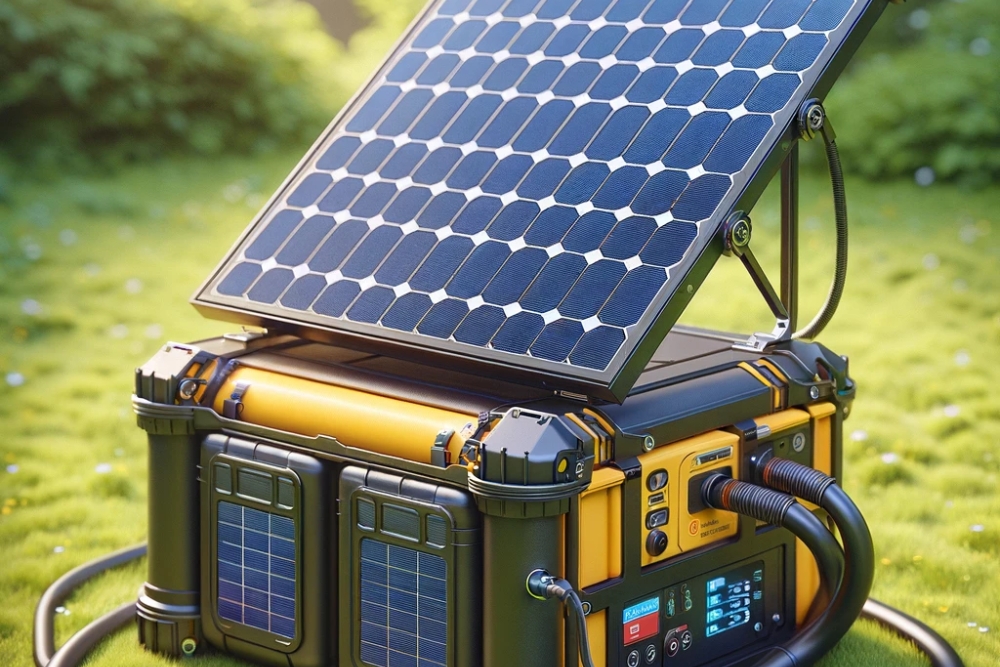Power Up Your Home in 2025 with This Essential Generator
As we approach 2025, the importance of reliable power sources for our homes continues to grow. With increasing concerns about grid stability and the need for sustainable energy solutions, power generators have become an essential consideration for homeowners. This article explores the world of power generators, their benefits, and why investing in one could be a game-changer for your home's energy security in the coming years.

What Are Power Generators and How Do They Work?
Power generators are devices designed to convert mechanical energy into electrical energy. They serve as a backup power source when the main electricity supply fails or becomes unavailable. The basic principle behind most power generators involves rotating a conductor within a magnetic field to produce an electric current. This process, known as electromagnetic induction, is the foundation for various types of generators, including those powered by fossil fuels and renewable sources like solar energy.
Why Are Power Generators Becoming Essential for Homes?
As we look towards 2025, several factors contribute to the growing importance of power generators for residential use:
-
Increased frequency of extreme weather events
-
Aging power infrastructure in many regions
-
Rising demand for electricity due to technological advancements
-
Growing interest in energy independence and sustainability
Having a reliable power generator ensures that your home remains functional during outages, protecting your comfort, safety, and valuable electronic devices.
What Types of Power Generators Are Available for Home Use?
There are several types of power generators suitable for residential applications:
-
Portable Generators: These are versatile units that can be moved around as needed. They typically run on gasoline or propane and are ideal for occasional use or during emergencies.
-
Standby Generators: These are permanent installations that automatically kick in when the main power supply fails. They often run on natural gas or propane and can power entire homes.
-
Solar Power Generators: These environmentally friendly options harness solar energy and store it in batteries for later use. They’re becoming increasingly popular due to their sustainability and low operating costs.
-
Inverter Generators: Known for their quiet operation and efficient fuel consumption, these generators produce clean power suitable for sensitive electronics.
How Do Solar Power Generators Compare to Traditional Options?
Solar power generators have gained significant traction in recent years due to their eco-friendly nature and potential for long-term cost savings. Unlike traditional fossil fuel-powered generators, solar generators produce clean energy without emissions or fuel costs. They’re also quieter and require less maintenance.
However, solar power generators typically have lower power output compared to their fuel-powered counterparts and may not be suitable for powering an entire home during extended outages. They also require a significant upfront investment and depend on sunlight availability for recharging.
What Features Should You Look for in a Power Generator?
When selecting a power generator for your home in 2025, consider the following features:
-
Power Output: Ensure the generator can handle your essential electrical needs.
-
Fuel Type: Choose between traditional fuels or renewable options like solar.
-
Automatic Start: For standby generators, this feature ensures seamless power transition.
-
Noise Level: Look for quieter models, especially if you live in a densely populated area.
-
Portability: If you need to move the generator, consider its size and weight.
-
Smart Features: Some modern generators offer remote monitoring and control via smartphone apps.
-
Efficiency: Look for models with good fuel efficiency or high solar conversion rates.
What Are the Costs Associated with Power Generators?
The cost of power generators can vary significantly based on type, capacity, and features. Here’s a general overview of pricing for different generator types:
| Generator Type | Power Output Range | Estimated Cost Range |
|---|---|---|
| Portable | 3,000 - 8,000 watts | $300 - $1,500 |
| Standby | 7,000 - 20,000 watts | $2,000 - $10,000 |
| Solar | 1,000 - 3,000 watts | $1,000 - $4,000 |
| Inverter | 1,000 - 7,000 watts | $500 - $4,000 |
Prices, rates, or cost estimates mentioned in this article are based on the latest available information but may change over time. Independent research is advised before making financial decisions.
It’s important to note that while the initial cost of a solar power generator may be higher, the long-term savings on fuel and maintenance can make it a cost-effective choice over time.
As we approach 2025, power generators are becoming an increasingly valuable investment for homeowners. Whether you opt for a traditional fuel-powered model or a sustainable solar solution, having a reliable backup power source can provide peace of mind and ensure your home remains functional during outages. By considering your specific needs, budget, and environmental concerns, you can choose the right power generator to keep your home powered up in the years to come.




